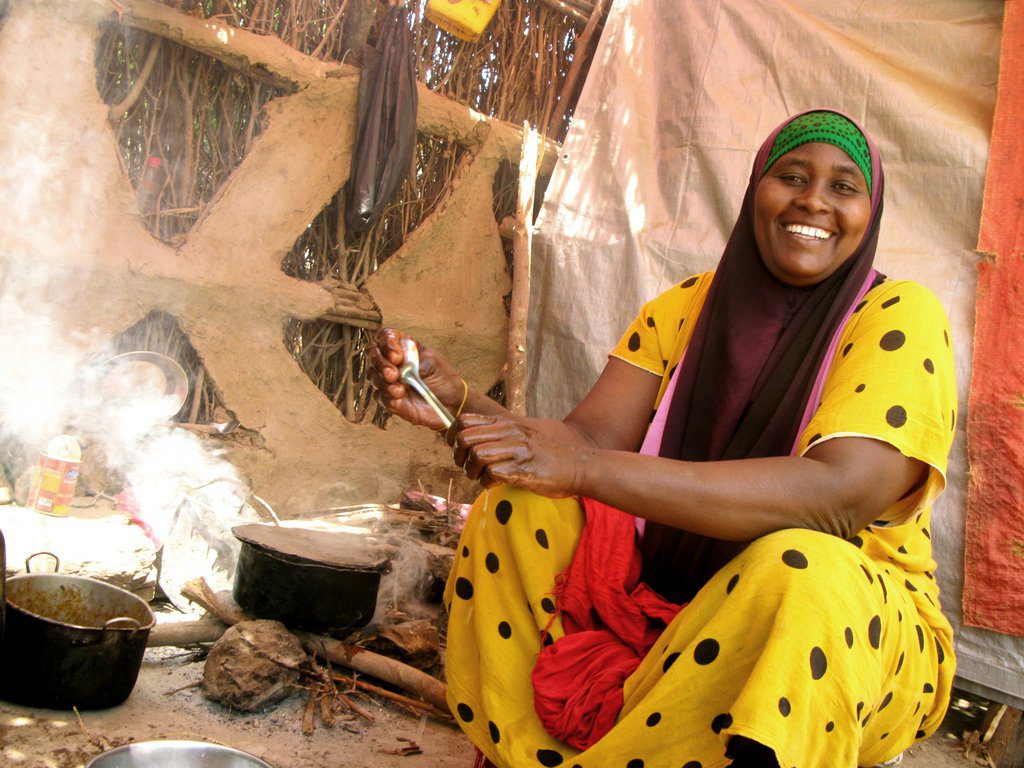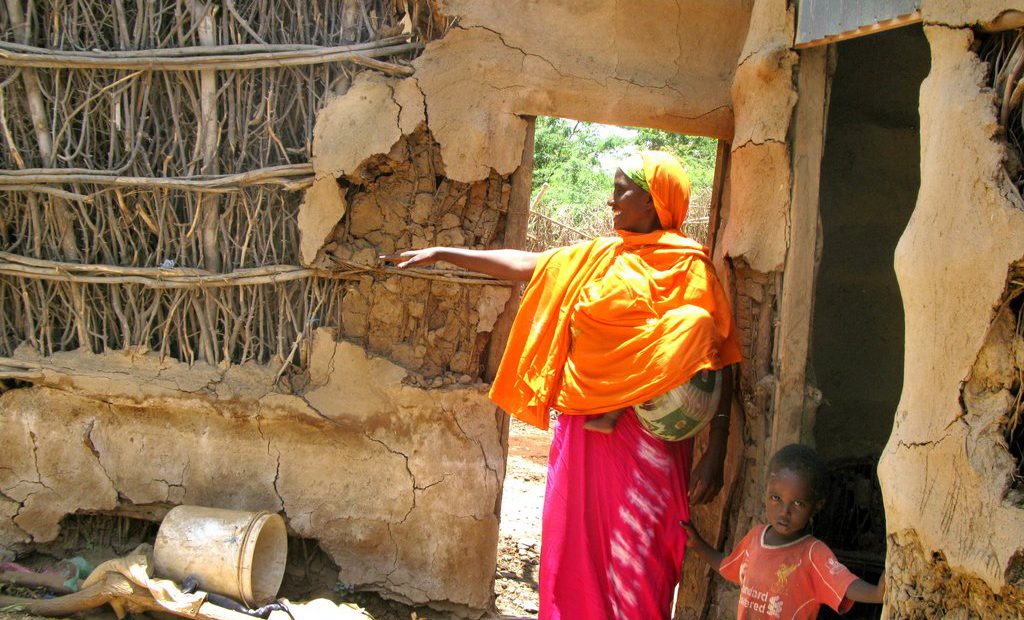Asha Ali* lives next to the Shabelle river in Beletweyne, a location that can be both a blessing and a curse. Easy access to water is a blessing. But five months ago the river poured over its banks, flooding the region. Asha lost almost all her crops and her four goats were washed away. Her traditional mud house made from tree branches and a mixture of clay soil still shows the signs of flood damage.
The May flood was so big that it displaced 70,000 people from their homes. Farmers living near the river’s shores were hit the hardest.
Asha and her husband Hassan were busy harvesting bananas when the river burst its banks, damaging her entire farm. Asha rushed to gather her children and join the people moving to higher ground in Eljale, 10km from Beletweyne town.
“I still bear the shock,” Asha said. “I was planning to sell the bananas and sorghum and pay my debts and here I am in a displacement camp. I couldn’t imagine this would happen.”
Before the catastrophe, Asha and Hassan used to sell almost five sacks of sorghum in the main Beletweyne market every day, earning enough income to feed their family. Today, there is no farming income.
“I would sell a sack of sorghum for $2 and on a good day I would come back home with $10. This was enough to take care of my family, but later things turned upside down and we have nothing left with us for now,” explained Asha.

Asha at her makeshift kitchen in Leebo, Beletweyne. She is among those who received $450 cash grant to help her restore her livelihood which was destroyed due to the flooding. ©ICRC/Mohamud Miraj
Asha is planning to use the $450 grant from the ICRC to pay off her debts and to expand her farm.
“Once I make enough profit, I will buy a piece at a higher elevation where I can stay away from floods and live with my family in peace,” she says.
*Not her real name



